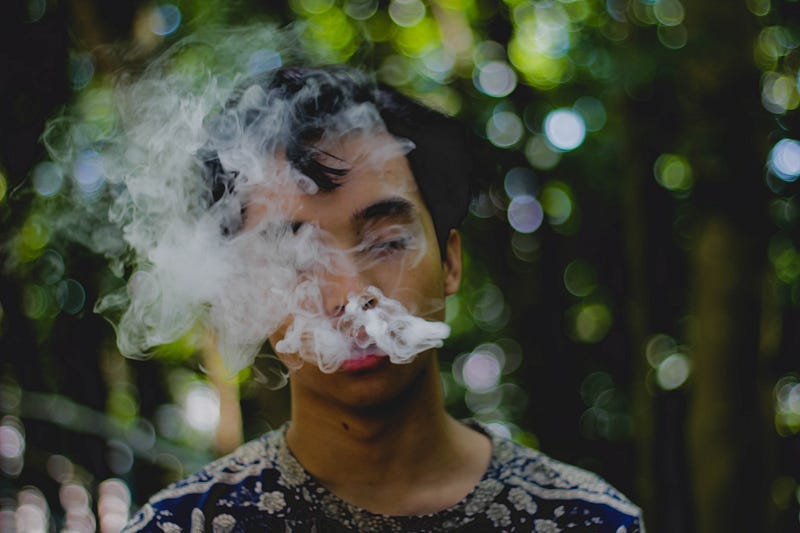Almost everything you know about addiction is wrong.
Let’s say for 20 days from now, you went off and used heroin three times a day. Now, what would happen?
Let’s say for 20 days from now, you went off and used heroin three times a day. Now, what would happen?
Because there are chemical hooks in heroin, as you took it for a while, your body would become dependent on those hooks, you’d start to need them physically, and at the end of 20 days, you’d be a heroin addict. Right?
That’s what I thought too. But something is not right with this story.
In hospitals, if someone breaks their hip they are given loads of Diamorphine. ‘Diamorphine is heroin.’ It’s actually much better than the heroin on the streets because the stuff someone buys from the drug dealer is contaminated, whereas the stuff you get from the doctor is medically pure. The patient may not realize it, but they take quite a lot of heroin for a long time.
And if what we believe about addiction is right, those people should become drug addicts. Well, that doesn’t happen, the people who get a hip replacement don’t come out as a junkie.
The idea of addiction we’ve all got in our heads comes partly from a series of experiments that were done earlier in the 20th century.
You get a rat, and you put it in a cage. And you give it two water bottles. One is just water, and the other one is laced with either heroin or cocaine. If you do that, the rat will almost always prefer the drug water and almost always kill itself quite quickly.
Later on, Professor Alexander observed that we put the rat in an empty cage. It’s got nothing to do except using those drugs. So he tried something different.
He builds a cage called as “Rat Park”, which is basically heaven for rats. They have got loads of cheese, coloured balls and tunnels. Crucially they have got loads of friends. And they have got both the water bottles the normal water and the drugged water.
And here’s the fascinating thing. In Rat Park, they don’t like the drug water. They almost never use it. None of them ever overdose.
The rats go from almost a hundred percent overdose when they are isolated to zero percent overdose when they have happy and connected lives
Maybe this is just a thing about rats, they’re quite different to us. But fortunately, there was a human experiment at the exact same principle happening at the exact same time. It was called the Vietnam War.
In Vietnam, 20% of all American troops were using loads of heroin, and if you look at the news reports from that time, they were really worried because they thought that we’re going to have hundreds of thousands of junkies on the streets of United States when the war ends.
Later on, those soldiers who were using loads of heroin were followed home. The Archives of General Psychiatry did a detailed study on what happened to them?
It turns out they didn’t go to rehab. They didn’t go into withdrawal. In fact 95% of them just stopped. Now if you believe the story about chemical hooks that makes absolutely no sense, but come to think of it there might be a different story about addiction.
What if addiction isn’t about chemical hooks? What if addiction is about your cage? What if addiction is an adaptation to your environment?
Human beings have a natural and innate need to bond, and when we are happy and healthy, we’ll bond and connect with each other, but if you can’t do that because you’re traumatized or isolated or beaten down by life, you will bond with something that will give you some sense of relief. Now that might be cocaine, that might be cannabis but you will bond and connect with something because that’s our nature.
I’ve been talking about how disconnection is a major driver of addiction. But aren’t we the most connected society that’s ever been. You open your social media account and you have hundreds of connections.
But the connections we have or think we have, are like a kind of parody of human connection. If you have a crisis in your life, you’ll notice something. It won’t be your Twitter followers who come to sit with you. It won’t be your Facebook friends who help you turn it around. It’ll be your flesh and blood friends with whom you have deep and nuanced and textured, face to face relationships.
We’ve traded floor space to friends, we’ve traded stuff for connections, and the result is we are one of the loneliest societies there has ever been. We’ve created a society where, for lot of us, life looks a whole lot more like that isolated cage and a whole lot less like Rat Park.
For hundred years now, we’ve been singing war songs about addicts. I think we should have been singing love songs to them, because the opposite of addiction is not sobriety. The opposite of addiction is connection.



